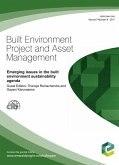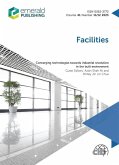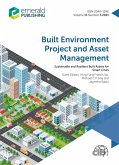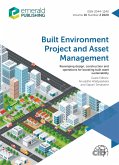Heritage buildings are physical artefacts that embody the memory of the past in order to guide and inform future generations. Given the strategic role of heritage buildings in shaping national identities, there has been growing research and practical interest in the adaptation of such buildings, particularly in terms of how the adaptation of heritage buildings can contribute to the sustainability agenda. Indeed, increasing awareness of climate change and the need to renew cities means that the conservation of heritage buildings has to be considered. Yet, unique traditional designs, coupled with the use of localised materials of the past can create challenges for the adaptation of such buildings.Early research has therefore focussed on the technical challenges and problems of adapting and refurbishing heritage buildings. Strategies have thus been formulated to holistically manage the economic, environmental and (to a lesser extent) social aspects of sustainability in relation to the adaptation of heritage buildings. What is common in many of these frameworks and strategies is the desire to create tools to support those involved in adapting heritage buildings to make more informed decisions.Nevertheless, what marks the adaptation of heritage buildings from other kinds of buildings is the level of uncertainty and imperfection. Whereas information models, especially of new buildings, tend to emphasise exactness, predictability and perfection, information about heritage buildings require the art of negotiation, interpretation and to capture the narratives and stories that matter to the communities that use such buildings. The social aspects are therefore integral to the adaptation of heritage buildings, elements that must be incorporated rather than eradicated from the designs. Indeed, the critical element of the social has also recently been identified in the renovation of buildings more generally. Yet, while studies on the adaptation of heritage buildings have recognised the issue of the social, these are often downplayed in favour of addressing economic, environmental and technological ones. In this EBook, we present a collection of papers that, individually and collectively, examine the conflicts and compromises made to adapt heritage buildings with social, environmental and economic concerns in mind.
Dieser Download kann aus rechtlichen Gründen nur mit Rechnungsadresse in A, B, BG, CY, CZ, D, DK, EW, E, FIN, F, GR, HR, H, IRL, I, LT, L, LR, M, NL, PL, P, R, S, SLO, SK ausgeliefert werden.









